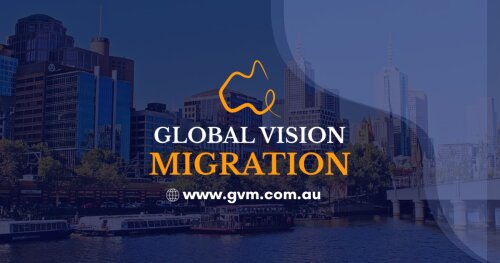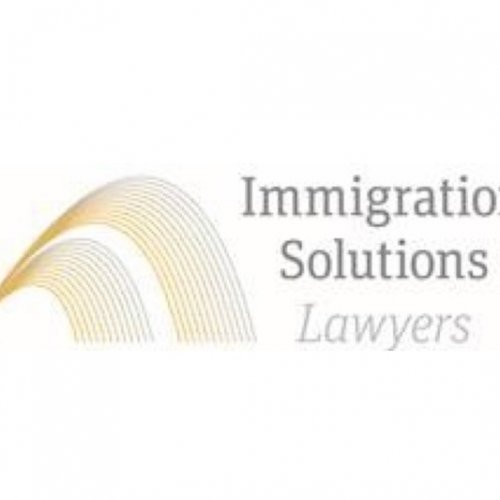Best Permanent Residency Lawyers in Australia
Share your needs with us, get contacted by law firms.
Free. Takes 2 min.
Or refine your search by selecting a city:
List of the best lawyers in Australia
About Permanent Residency Law in Australia
Permanent Residency (PR) in Australia allows foreigners to live, work, and study in Australia indefinitely. It provides access to healthcare, education, and other benefits. PR holders can also sponsor relatives to come to Australia and, after fulfilling specific residency requirements, apply for Australian citizenship. Paths to PR include skilled migration, family sponsorship, and humanitarian or asylum pathways.
Why You May Need a Lawyer
Applying for Permanent Residency can be complex due to intricate regulations and frequent changes in immigration law. You may need a lawyer if:
- You are unsure about your eligibility for a PR visa.
- Your PR application has been rejected and you wish to appeal.
- You require guidance on completing and submitting your application to ensure all documentation is correctly presented.
- You have a unique or complicated case, such as medical issues or criminal records, that could affect your application.
- You need assistance in understanding legislative amendments or policy frameworks that impact your application.
Local Laws Overview
Australian Permanent Residency laws are governed by the Migration Act 1958 and the Migration Regulations 1994. Key aspects include:
- Visa Categories: There are several visa types for skilled workers, family members, refugees, and special eligibility groups.
- Points System: Skilled migration typically relies on a points-based system assessing age, English proficiency, work experience, and educational qualifications.
- Health and Character Requirements: Applicants must pass health checks and character assessments. This includes police certificates from countries you've lived in.
- Residency Obligations: PR holders must remain in Australia for a certain period to maintain their status and be eligible for citizenship.
- Sponsorship Obligations: Sponsors must meet financial and legal commitments to support applicants.
Frequently Asked Questions
What does Permanent Residency in Australia allow me to do?
PR allows you to live indefinitely in Australia, work, study, access Medicare, and eventually apply for citizenship.
How can I become a Permanent Resident of Australia?
You can become a Permanent Resident through skilled migration, family sponsorship, or humanitarian programs.
Can I include family members in my Permanent Residency application?
Yes, you can include your spouse, partner, and dependent children in your application.
How long does the PR application process take?
The processing time varies depending on the visa type and individual circumstances, generally from several months to over a year.
What happens if my PR application is refused?
If refused, you may appeal to the Administrative Appeals Tribunal or reapply, addressing the issues that caused the refusal.
Can I lose my Permanent Resident status?
Yes, you can lose PR status if you fail to comply with residency obligations or commit serious crimes.
What is a bridging visa, and do I need one?
A bridging visa allows you to stay in Australia while awaiting a decision on your PR application, ensuring you remain lawfully in the country.
Are there English language requirements for PR?
Yes, certain PR visas require applicants to demonstrate English proficiency through recognized tests like IELTS or TOEFL.
Can I apply for Australian citizenship after getting PR?
Typically, you can apply for citizenship after holding PR for four years, including at least one year as a PR holder, given you meet residency and character requirements.
What financial commitments do I need to meet for a PR application?
This varies by visa type. Skilled visas may require proof of funds for settlement, while family visas involve sponsorship commitments.
Additional Resources
For more information, consider the following:
- Department of Home Affairs: The Australian Government's main body for immigration matters.
- Migration Agents Registration Authority (MARA): Offers guidance on using registered migration agents.
- Citizenship and Immigration Centres: Provide local assistance and information.
- Legal Aid Commissions: May offer free or low-cost legal advice.
Next Steps
If you need legal assistance for your PR application:
- Research: Gather information on your visa options and eligibility.
- Consultation: Schedule an appointment with a registered migration agent or lawyer specializing in immigration law.
- Legal Representation: If needed, engage a lawyer to assist with preparing your application and representing you in any legal matters.
- Stay Informed: Keep up-to-date with changes in migration laws and policies.
Lawzana helps you find the best lawyers and law firms in Australia through a curated and pre-screened list of qualified legal professionals. Our platform offers rankings and detailed profiles of attorneys and law firms, allowing you to compare based on practice areas, including Permanent Residency, experience, and client feedback.
Each profile includes a description of the firm's areas of practice, client reviews, team members and partners, year of establishment, spoken languages, office locations, contact information, social media presence, and any published articles or resources. Most firms on our platform speak English and are experienced in both local and international legal matters.
Get a quote from top-rated law firms in Australia — quickly, securely, and without unnecessary hassle.
Disclaimer:
The information provided on this page is for general informational purposes only and does not constitute legal advice. While we strive to ensure the accuracy and relevance of the content, legal information may change over time, and interpretations of the law can vary. You should always consult with a qualified legal professional for advice specific to your situation.
We disclaim all liability for actions taken or not taken based on the content of this page. If you believe any information is incorrect or outdated, please contact us, and we will review and update it where appropriate.
Browse permanent residency law firms by city in Australia
Refine your search by selecting a city.
















